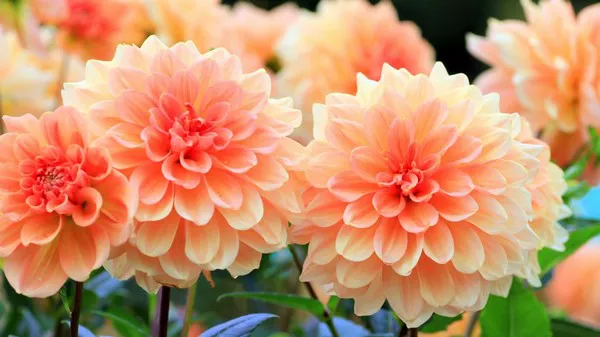Cosmos flowers, with their delicate petals and vibrant colors, have captured the hearts of gardeners and flower enthusiasts around the world. Beyond their visual appeal, these captivating blooms hold profound symbolism and cultural significance. In this article, we delve into the fascinating world of cosmos flowers, exploring their meanings, historical connections, popular varieties, and the various ways they have influenced art, literature, and human emotions. Join us as we unravel the mysteries behind cosmos flowers and their enduring allure.
1. The Cosmos Flower: A Closer Look at Its Beauty
Cosmos (Cosmos bipinnatus) is a genus of flowering plants belonging to the Asteraceae family. Native to Mexico, these annual or perennial plants are renowned for their daisy-like flowers with slender petals that come in an array of colors, including white, pink, magenta, and shades of orange and yellow. The name “cosmos” is derived from the Greek word meaning “harmony” or “ordered universe,” a fitting tribute to the flower’s symmetrical beauty.
2. Cosmos Flower Symbolism: Unveiling the Meanings
Throughout history, cosmos flowers have been associated with various symbolic meanings and sentiments:
Harmony and Peace: As the name suggests, cosmos flowers are often regarded as symbols of harmony and tranquility. Their balanced and orderly appearance reflects a sense of peace and equilibrium.
Love and Affection: Cosmos flowers are also linked to feelings of love and affection. In the language of flowers, gifting someone cosmos blossoms can express deep affection and admiration.
Whimsy and Playfulness: With their cheerful and carefree appearance, cosmos flowers evoke a sense of whimsy and playfulness, adding a touch of joy to any garden or floral arrangement.
Fleeting Nature of Life: Like many other flowers, cosmos blooms have been associated with the fleeting nature of life and the passage of time, reminding us to cherish every moment.
3. Cultural Significance and Historical Connections
Cosmos flowers have left an indelible mark on various cultures, influencing art, literature, and religious practices:
Mexican Folklore: Cosmos flowers are native to Mexico and hold special significance in Mexican folklore. They are often associated with Xochiquetzal, the Aztec goddess of love, fertility, and beauty, making them an integral part of traditional celebrations and ceremonies.
Japanese Gardens: In Japanese culture, cosmos flowers are admired for their delicate beauty and are commonly found in traditional gardens. They are celebrated during the annual Cosmos Festival, where people gather to enjoy their exquisite blooms.
Symbol of Hope: In the United States, cosmos flowers gained popularity during World War II when they were planted in “Victory Gardens.” Their vibrant colors served as symbols of hope and optimism during challenging times.
4. Popular Cosmos Flower Varieties
Cosmos flowers boast numerous captivating varieties, each with its unique characteristics and color palette. Some of the popular cosmos varieties that have won the hearts of gardeners and enthusiasts include:
Cosmos bipinnatus ‘Sonata’: This dwarf variety features compact plants with dainty flowers in shades of pink, white, and crimson. ‘Sonata’ is well-suited for container gardening and small spaces.
Cosmos bipinnatus ‘Purity’: As the name suggests, ‘Purity’ showcases pure white blooms that exude an aura of elegance and simplicity.
Cosmos bipinnatus ‘Sensation’: This variety boasts large, vibrant flowers in shades of pink, carmine, and white, making it a show-stopper in any garden.
Cosmos sulphureus ‘Bright Lights’: ‘Bright Lights’ cosmos display warm hues of orange, gold, and red, adding a fiery touch to landscapes and floral arrangements.
6. Cosmos in Art and Literature
The timeless beauty and symbolism of cosmos flowers have inspired artists and writers throughout history:
Paintings and Drawings: Renowned artists such as Vincent van Gogh and Claude Monet have immortalized cosmos flowers in their paintings, capturing their ethereal charm and vivid colors.
Poetry and Literature: Cosmos flowers have been the subject of poems and literary works that explore themes of beauty, love, and the transient nature of life.
Conclusion
Cosmos flowers, with their harmonious beauty and multifaceted symbolism, continue to captivate our senses and touch our hearts. From representing love and peace to inspiring artists and writers, these daisy-like blooms hold a special place in cultures around the world. As we cultivate and appreciate the allure of cosmos flowers in our gardens and floral arrangements, let us also reflect on the profound meanings they convey – a reminder of the fleeting nature of life and the enduring beauty of nature that surrounds us.


